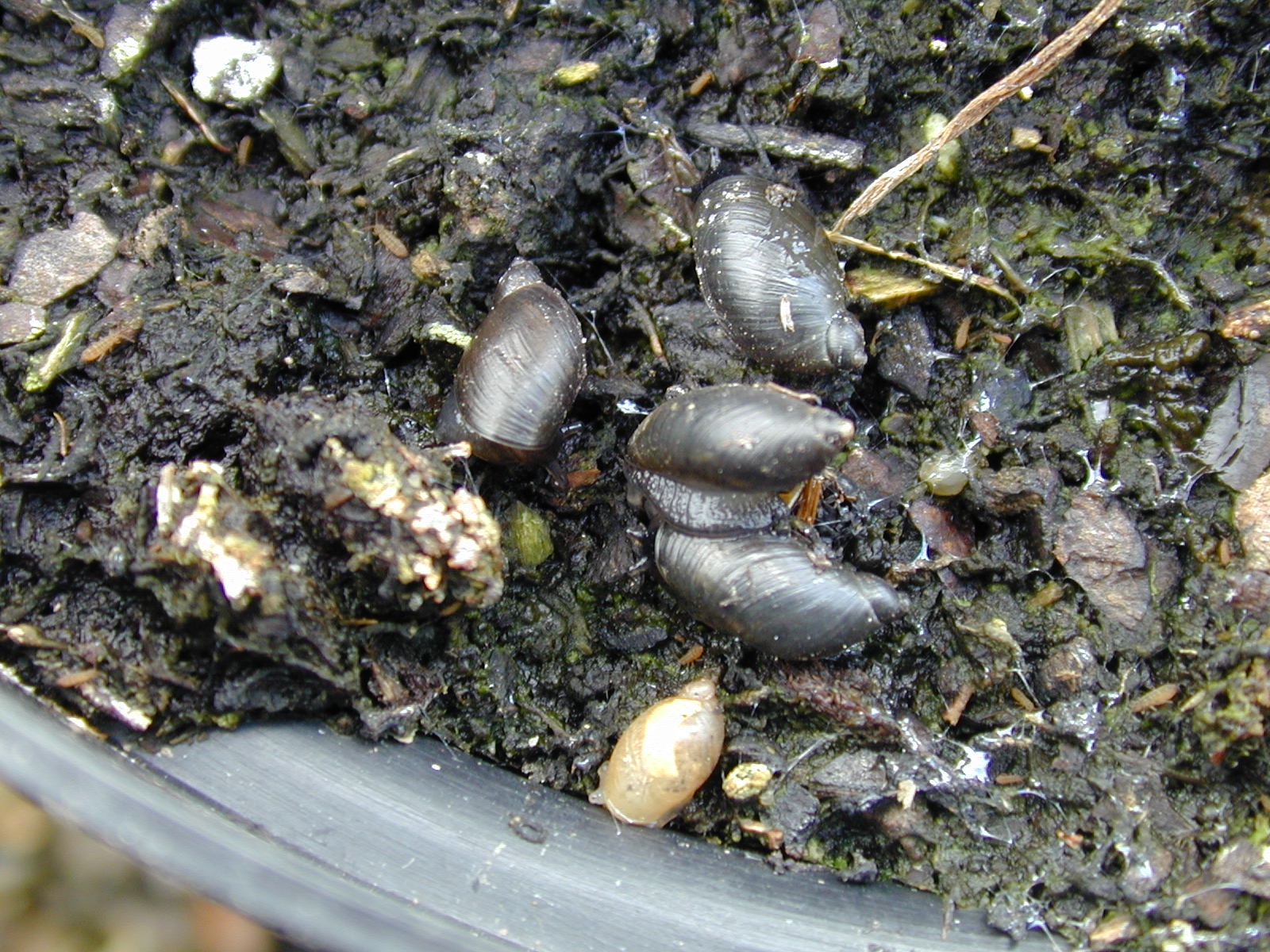Please click here to access the main AHDB website and other sectors.
- Home
- Knowledge library
- Integrated control of slugs and snails on hardy nursery stock
Integrated control of slugs and snails on hardy nursery stock
Follow the guidance in these pages to help recognise the main species of slug and snail damaging container-grown hardy nursery stock. Learn key information about their biology and check the cultural, biological and chemical control methods you can use in your integrated pest management (IPM) strategy.
Management of slugs and snails on container-grown hardy nursery stock
Slugs and snails damage a wide range of hardy nursery stock (HNS) species and slug pellets are ineffective against the most common species of snail occurring on HNS. Feeding damage is obvious, causing plant losses or downgrading due to retail demands for high-quality plants. At a conservative estimate of 1% losses, difficulties in controlling slugs and snails cause annual losses of around £6 million to the container-grown HNS industry.
On these pages we’ll cover the important factors to assist in the management of slugs and snails:
- Recognising the species involved and the damage caused
- The biology of the main species of slugs and snails damaging HNS
- Monitoring
- Cultural, biological and chemical control
Select from the pages below for more information.
Action points
- Maintain good nursery hygiene to reduce shelter and food for slugs and snails
- Dispose of unmarketable plants and plant trimmings promptly as they can harbour slugs and snails
- Monitor for slugs and snails from late winter onwards – check plants for damage and slime trails, look under pots and trays, as well as on the plants and growing media
- Try out refuge traps baited with chicken layers' mash or cereal grain-based food to assist with slug monitoring to see if they are effective in HNS production
- Check bought-in plants for damage symptoms and under pots and trays for slugs and snails
- Avoid over-watering as this favours slug and snail activity and the growth of algae and liverworts which snails can feed on
- Encourage natural predation of slugs and snails by providing habitats for birds, hedgehogs and ground beetles
- Consider the use of Tex-R matting as a production bed, covering in areas prone to slugs and snails
- Trial Nemaslug against young slugs from April onwards, and snails from late March onwards, when temperatures are 5–30°C
- If pellets are necessary for slug control, use ones based on ferric phosphate from an environmental safety perspective. However, these are unlikely to be effective against the most common snail species in HNS
Recognising the main species of slug and snail damaging hardy nursery stock
Learn to identify the main species of slug and snail that can damage container-grown hardy nursery stock.
Learn how to identify the key slug and snail species
Slug and snail damage to hardy nursery stock
Recognise slug and snail damage symptoms on plants and which hardy nursery stock species are commonly affected.
Find out more about the symptoms of slug and snail damage
Biology and monitoring of slugs and snails on hardy nursery stock
Learn when the main species of slug and snail are active, when they breed, how to monitor for their presence and what the potential sources of infestation can be.
Understand the biology of the pests and effective ways to monitor them
Cultural, biological and chemical control of slugs and snails on hardy nursery stock
Management of slugs and snails on hardy nursery stock is best achieved using an integrated control strategy involving a combination of cultural, biological and chemical control methods.
Combining cultural, biological and chemical control methods in an integrated control strategy
Useful links
Author(s) – Jude Bennison and David Talbot, ADAS Horticulture.
Original author(s) – Jude Bennison, ADAS Horticulture.
Webpage content correct as of March 2021.
Oxyloma elegans (Pfeiffer’s amber snail) – the most common snail found on container-grown hardy nursery stock

Image courtesy and © ADAS RSK.

